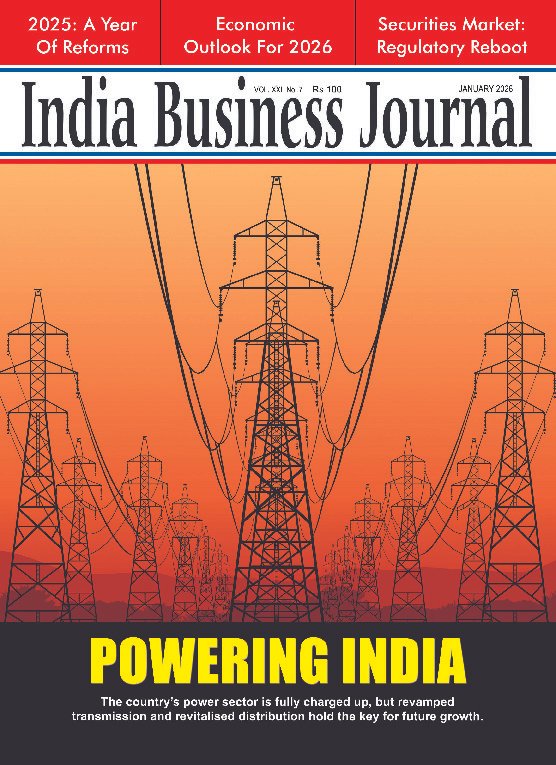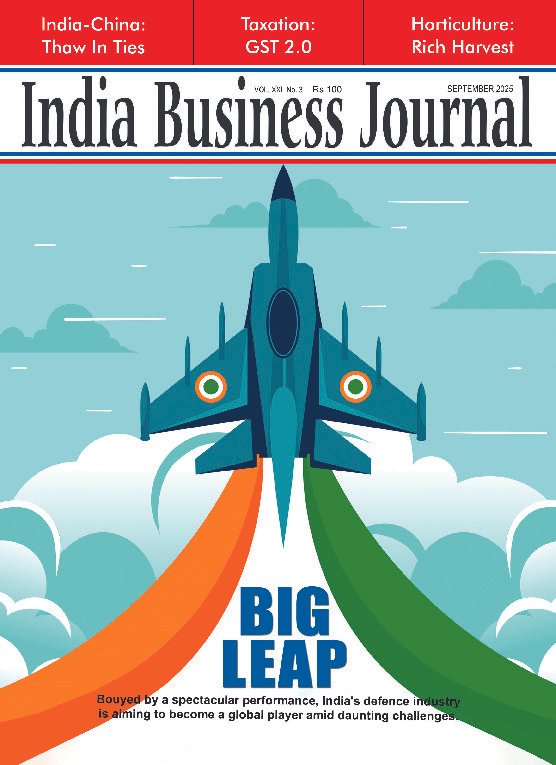MANAGEMENT MANTRA
“Focus On The Right Problem”: Diwesh Sahai, CTO, GoodWorker
- Sharmila Chand
- Jan 02, 2022

With
a BTech graduate in aerospace engineering from IIT Kanpur, Diwesh Sahai has
worked across segments, such as e-commerce, digital (e-books, video), fintech
(payments bank), application development (TV, streaming device and mobile) and the
like. As the chief technology officer (CTO) of GoodWorker – a Bengaluru-based
company that connects blue-collar workers and potential employers in India with
one another – Mr Sahai has been driving a team of committed professionals. He
has over two decades of experience as a senior leader in software development
in both startups and large organisations. In an enriching chat with Sharmila Chand, Mr Sahai explains the
management principles that have brought him success.
Your five
management mantras
● Enable
and develop decision-making capabilities in everyone: Everyone owns a
problem, everyone takes action, and no one feels frustrated. In a self-driven
organisation, it is important that everyone is making effective decisions and
taking actions to achieve the right impact and results. The biggest service a
leader can do is to enable everyone to be effective in their decision-making
and empower them.
● Don’t
focus on pleasing everyone: Define success outcomes, and work for them
instead of trying to meet everyone’s expectations. Your job as a leader is not
to make everyone happy. Your job is to help everyone succeed.
● A
problem well stated is half the problem solved: More often than not, we
build a lot of context and solution in a problem statement. As a leader, your
job is to make sure that the problem is well articulated, and everyone is on
the same page. Once that is settled, everyone works towards finding the right
solution.
● Always
disconfirm your beliefs: We all have strong beliefs built over long,
successful careers. These beliefs create blind spots. As a leader, it is
important to be open and constantly listening, reviewing data and questioning
yourself to make sure that we are making the best decisions to succeed.
● Build
fast, fail fast, iterate fast – Be data-driven: It’s important to be nimble
and take risks, and it’s ok to fail. If we haven’t failed, we haven’t tried
enough.
A game that
which helps your career
I
love to play cricket. It’s for the pure love of the game and not necessarily for
helping in work. It’s a team game, and like any team game, it helps build
camaraderie with fellow team members. It also inculcates the behaviour to win.
It’s important to maximise each other’s strengths rather than compete with each
other.
Turning point in
your career life
It
was during my stint at Winphoria Networks. I was quite young then. I had a
large team of around 27 people distributed across three geographies (Ireland,
Argentina and India). I was the most experienced person in the team, and being an
expert, I practically micro-managed each feature of the product we were
developing. Once the product went into production, there were multiple issues. With
every issue that was identified, I thought about why I couldn’t spot it coming,
and what did I miss. This was a major inflection point of my career where I learnt
that I am not superman but as human as anyone else. So, I shouldn’t be
everywhere, and that it is important to create the right team structure and
enable people in the organisation at every level to make decisions.
Secret of your
success
● Building
a people-centric approach to organisation and culture: Businesses pivot,
technologies change, processes evolve, but the same set of people has to make
this happen. If we don’t build a great team, we are not going anywhere.
● Regular
introspection, learnings and actions as a feedback loop: I do frequent
introspections and at times write my thoughts to bring clarity to the
observations. Right observations lead to learnings which then have to be
converted into concrete action items. This has always helped me grow in my
ability to learn new things and find the right solutions.
● Identify
simple yet powerful solutions to complex problems: Nature is full of
examples of how simple yet powerful principles drive what looks to be a complex
thing. I always strive towards finding that simplicity in every problem that
appears complex. I don’t settle until that is achieved.
A person you
admire
James
Cumberbatch – a combination of brilliance with empathy. I had an opportunity to
work with him during my stint at Amazon. I was inspired by his ability to
enable multiple complex experiments and innovations to a very open-ended goal
while still establishing himself as a trusted and popular leader across
multiple teams and geographies.
Best advice that
you got
Find
ways to make it happen rather than finding reasons for why it won’t happen. (From
Manoj Gupta, a former colleague at Amazon)
Your favourite
book
Freakonomics: This
book has helped me significantly in applying economics to every single
behaviour and action. It has also helped me understand how data can be
misleading if we are not making the right assumptions and outcomes. I would
recommend everyone to read this book.
Your fitness regime
I
walk briskly in the morning and evening to keep myself fit.
Your five
business mantras
● Focus
on the right problem: It’s not as simple as it sounds. Understanding the
customer’s pain points along with gaps in the existing product and then
focusing on solving the right problem is the first step towards any successful
venture.
● Measure,
monitor and iterate: If you are not measuring the key metrics which define
product and business success, you are running blind. A common pitfall is when
people only measure outcomes in terms of revenue. I call it measuring the lag
metrics. Identify and build lead metrics that clearly define business success.
Monitor metrics, build review mechanisms, take cues, and then take actions to
iterate the product in order to improve customer experience.
● Customer
is king: Very well-known statement, but how to interpret and measure it is
evolving with time. It is important to carefully stitch in every piece of the
product to make sure that the customer is put first. It is essential to
implement this thinking across the organisation. Building a customer-first
culture and measuring NPS is becoming fundamental to the success of every
business.
● Observe
(listen), learn and pivot: Carefully observe data, and listen to what it is
revealing. Be open to learning along the journey and identifying gaps in
hypothesis and assumptions. Be open to pivoting the business and product.
Building an organisation which is nimble and agile forms an essential part of
this strategy.
● Build
processes and automation for opex (operational expense) reduction: Last,
but not the least, you can’t bloat your cost of operations. Making sure that
you are building the right process and automation to continuously reduce the
operational cost should not just be a part of the strategy but also the focus.
Your message on management to youngsters
There is no shortcut to hard work when it comes to learning. Observe, listen and learn, and keep a growth mindset.





















Report By
View Reporter News